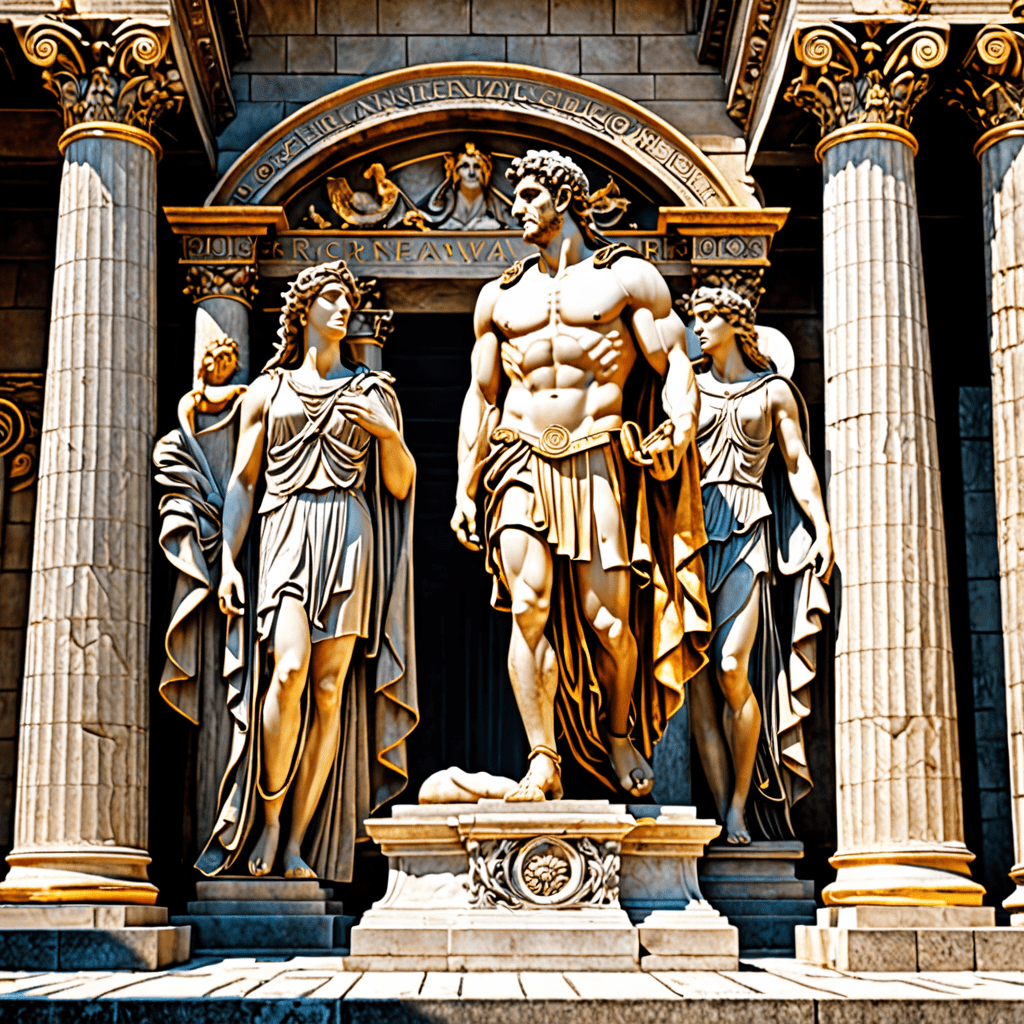Roman Mythology: Tales of Investment and Return
The Concept of Investment in Roman Mythology
In Roman mythology, stories often revolve around themes of investment, where gods, goddesses, and mortals alike make significant efforts or sacrifices in pursuit of desired outcomes. One prominent example is the tale of Demeter, the goddess of agriculture, who invested her time and energy in nurturing the earth to ensure bountiful harvests. The concept of investment in Roman mythology emphasizes the idea that dedicating resources and effort into a venture can yield valuable returns.
Divine Transactions and Expected Returns
Roman mythology is rich with stories of divine transactions and the expected returns that follow. For instance, the legend of Fortuna, the goddess of luck and fortune, highlights how individuals would make offerings and prayers to her in exchange for desired outcomes. This relationship signifies the belief that investment, whether in the form of prayers, sacrifices, or actions, can influence the return one receives from the gods.
The Symbolism of Returns in Roman Myths
In Roman mythology, returns are often symbolic of the balance between actions taken and rewards reaped. The story of Bacchus, the god of wine and revelry, epitomizes this concept, as those who invested in celebration and merriment were believed to receive joy and abundance in return. The symbolism of returns in Roman myths serves as a metaphor for the natural order of investment and its outcomes in the mortal realm.
Inspiration from Roman Mythology for Modern Investment
While Roman mythology may be ancient, its tales of investment and return can still offer valuable insights for modern-day practices. The overarching themes of effort, sacrifice, and expected outcomes remain relevant in the context of investments, be it in personal growth, relationships, or financial endeavors. Drawing inspiration from the stories of Roman gods and heroes, individuals can reflect on the significance of their investments and the returns they anticipate.
FAQ about Roman Mythology: Tales of Investment and Return
What is Roman mythology?
Roman mythology refers to the traditional beliefs and stories of ancient Rome. It includes a vast array of gods, goddesses, heroes, and mythical creatures that the Romans worshipped and revered.
What are the tales of investment and return in Roman mythology?
The tales of investment and return in Roman mythology often revolve around themes of sacrifice, reciprocity, and consequences. These stories depict the interactions between gods and mortals, highlighting the importance of offerings, prayers, and fulfilling one’s obligations to ensure favorable outcomes.
Can you provide an example of a tale of investment and return in Roman mythology?
One prominent example is the story of Ceres, the goddess of agriculture, and her daughter Proserpina. When Proserpina was kidnapped by Pluto, the god of the underworld, Ceres took action to find her. Through her determination and perseverance, Ceres secured Proserpina’s return to the surface, emphasizing the concept of investment leading to positive returns.
How do the tales of investment and return in Roman mythology impact daily life?
These myths serve as moral lessons, encouraging individuals to fulfill their responsibilities, show gratitude, and understand the interconnectedness between actions and outcomes. By learning from these



